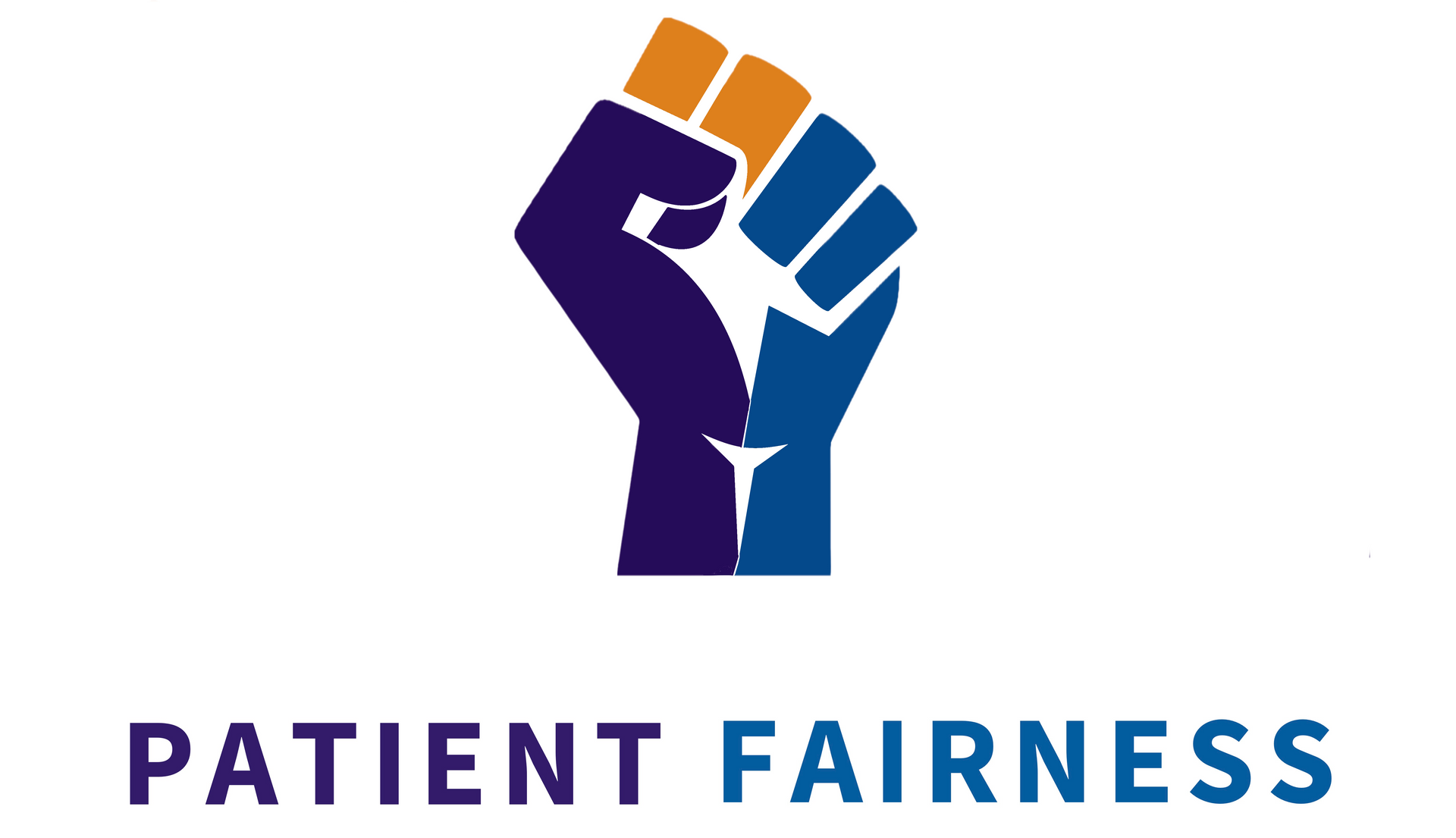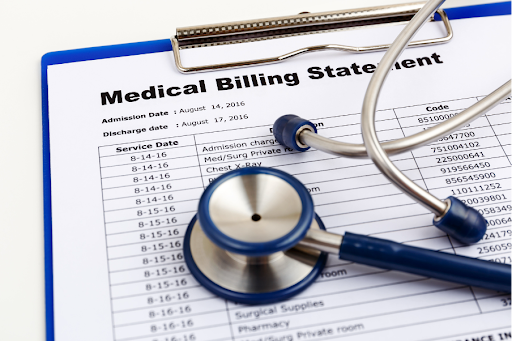California's New Law Bans Medical Debt from Affecting Credit Scores
Starting January 1, 2025, California completely baned medical debt from appearing on credit reports or influencing credit scores. This law provides strong consumer protection against medical debt credit reporting - and includes meaningful enforcement provisions that can eliminate debts entirely when violated.
If you're a California resident dealing with unfair medical bills or collections, understanding this law can significantly help you to protect your credit and potentially erase medical debt. Here's what every Californian needs to know.
What California's Medical Debt Credit Ban Does
California law (Ca. Health and Saf. Code § 1785.27) prohibits healthcare providers, debt collectors, and credit reporting agencies from reporting medical debt to credit bureaus or using medical debt in any credit scoring decision.
Complete Ban on Medical Debt Reporting
Under the new law, the following cannot report unpaid medical debt to credit agencies:
- Hospitals and hospital systems
- Physicians and medical practices
- Ambulance services
- Laboratories and imaging centers
- Debt collection agencies collecting medical debt
- Debt buyers who purchased medical debt
This applies to all medical debt, regardless of amount or age. Unlike federal protections that apply only to debts above $500, or after certain waiting periods, California bans reporting medical debt of any size and age.
Ban on Credit Scoring Use
The law also prohibits using medical debt information in credit scoring decisions. Even if a provider somehow reports medical debt, the debt cannot be factored into:
- Credit scores used for lending decisions
- Credit evaluations for rental applications
- Employment credit checks
- Insurance underwriting that considers credit
This dual protection - barring both reporting and use - helps to ensure medical debt cannot harm California residents' creditworthiness.
Powerful Enforcement: Debt Becomes Void
The law includes a provision that gives it real teeth: if a healthcare provider or debt collector knowingly furnishes medical debt information to a credit reporting agency after January 1, 2025, the debt becomes legally void.
This means the debt is completely eliminated. The provider or collector loses the legal right to collect anything. For patients, this creates a powerful enforcement mechanism - violate the law, lose the debt entirely.
How This Differs from Federal Protections
California's law goes significantly beyond existing federal credit reporting protections for medical debt.
Federal Rules Are Limited
Under changes implemented by the three major credit bureaus in 2022:
- Medical debts under $500 don't appear on credit reports
- Paid medical debts are removed immediately
- There's a one-year waiting period before unpaid medical debt can appear
The federal No Surprises Act also protects against certain surprise bills but doesn't directly address credit reporting.
California's Law Is Comprehensive
California's protections are stronger in every way:
No dollar threshold – All medical debt is protected, not just amounts under $500
Immediate protection – No waiting period; the ban applies to all medical debt from day one
Covers all medical debt – Not just collections but all medical bills, regardless of status
Applies to original creditors – Hospitals and providers cannot report, not just collection agencies
Complete ban – Not just limited reporting but a total prohibition on reporting and use
Debt voiding provision – Violations result in debt cancellation, creating strong deterrence
For California patients, this means medical bills - no matter how large or how old - cannot damage credit scores or appear on credit reports.
What This Means for California Patients
The practical implications of this law are substantial and create new opportunities for patients facing medical debt.
Protection from Credit Damage
The most immediate benefit is protection from credit score damage. Medical debt in collections has historically been one of the leading causes of poor credit scores, preventing people from:
- Qualifying for mortgages or auto loans
- Renting apartments
- Getting competitive interest rates
- Passing employment credit checks
California residents no longer face these consequences from unpaid medical bills. This removes one of the primary threats that providers and collection agencies use to pressure payment.
Leverage to Dispute and Negotiate
California’s credit reporting ban removes negative credit reporting as a weapon for providers and agencies to use in billing and collections. That weapon is now gone.
This creates opportunities to:
Refuse to be Bullied – Without credit consequences, you can fight for fair treatment by disputing a medical bill without threat that the provider or collections agency will harm your credit.
Take time to dispute properly – You should not feel rushed to pay a bill you think is unfair just to avoid the provider reporting the debt to a credit agency.
Refuse unfair settlement terms – Collectors can't threaten your credit as a tactic to disregard the concerns in your medical dispute.
Walk away from illegitimate debts – If you have disputed a bill, and the provider won't correct it or otherwise address your concerns, you know that if the dispute remains unresolved that the disputed bill cannot harm your credit
Enforcement Tool Against Violations
If a provider or collector reports your medical debt to credit agencies after January 1, 2025, you have a powerful remedy: the debt becomes void.
Patient Fairness will notify parties on behalf of its customers to correct any medical debt reporting prohibited under California law. This service is included as part of Patient Fairness’s medical bill dispute services.
California patients not using Patient Fairness can enforce the medical debt reporting prohibition as follows:
- Check your credit reports regularly (free at annualcreditreport.com)
- If medical debt appears, document it with screenshots and credit report copies
- Send a written notice to the provider/collector informing them of the violation
- Cite Health and Safety Code Section 1785.27 and demand debt cancellation
- If they refuse, file a complaint with the California Attorney General and Department of Financial Protection and Innovation
The law's "void if reported" provision means violations can completely eliminate debts you might otherwise owe.
Medical Debt Already on Your Credit Report
What happens to medical debt that appeared on California residents' credit reports before January 1, 2025?
Reporting Before the Effective Date
The law applies to reporting that occurs on or after January 1, 2025. Medical debt reported before that date isn't automatically removed just because the law took effect.
However, you have options:
Dispute with credit bureaus – File disputes with Equifax, Experian, and TransUnion arguing that continued reporting of medical debt violates California law
Demand removal from providers – Contact the original creditor or collection agency and demand they remove the tradeline from your credit reports based on the new law
Pay for immediate removal – Under federal rules, paid medical collections must be removed immediately. Paying the debt triggers automatic removal
Wait for natural expiration – Medical collections remain on credit reports for seven years from the date of first delinquency, then must be removed automatically
Strategic Considerations
For older medical debt already on your credit report, weigh your options:
- If the debt is close to the seven-year removal date, waiting may be better than paying
- If you need clean credit immediately (for a mortgage, etc.), paying for immediate removal might make sense
- If the underlying bill was unfair or contains errors, disputing it may eliminate the debt entirely rather than just removing it from your report
How Providers and Collectors Are Responding
Healthcare providers and collection agencies are adjusting their practices in response to California's credit reporting ban - but not all are complying fully.
Compliant Practices
Many large hospital systems and reputable collection agencies have updated their procedures to avoid reporting medical debt from California residents. They're relying instead on:
- Direct billing and payment arrangements
- Payment plans without credit reporting threats
- Traditional collection calls and letters
- Legal action (lawsuits) for very large debts
Concerning Practices
Some providers and collectors are attempting workarounds or simply haven't updated their systems:
- Continuing to report medical debt, either through ignorance of the law or deliberate violation
- Using out-of-state collection agencies that may not be aware of California's law
- Threatening credit reporting even though they can't legally do it
- Claiming the law doesn't apply to their specific situation
If a provider or collector threatens to report your medical debt to credit agencies, remind them of the law and document the threat. If they follow through, you may be able to void the debt entirely.
Other California Medical Billing Protections
The credit reporting ban is part of California's broader framework of strong patient protections. Understanding all your rights maximizes your ability to fight unfair medical bills.
Billing Time Limits and Statute of Limitations
California providers must bring legal action to collect medical debt within 12 months from the date of service. After that, the debt becomes legally unenforceable - they cannot sue you or obtain a judgment.
This is among the shortest statutes of limitations in the country and provides significant protection. If a provider hasn't sued within one year, the debt effectively becomes uncollectable through legal action.
Debt Collection Requirements
Before sending bills to collections, California hospitals must provide detailed information including:
- Date(s) of service and provider name
- Name of debt buyer or collection agency
- How to request an itemized bill
- Insurance coverage information or statement that none was recorded
- Information about charity care and financial assistance applications
- Proof of prior notice about financial assistance availability
If these requirements aren't met, the provider's ability to collect may be compromised.
Financial Assistance Protections
If you're uninsured or have high medical costs and your household income is at or below 400% of the federal poverty level, California hospitals cannot charge more than:
- The Medicare payment amount, or
- The Medi-Cal payment amount - whichever is higher
Hospitals must also offer reasonable payment plans based on your income and essential living expenses. Many patients qualify for these protections without realizing it.
Surprise Billing and Balance Billing Restrictions
California law restricts surprise billing and balance billing in several scenarios:
Emergency care – You can only be charged in-network cost-sharing amounts for emergency services, even at out-of-network facilities
Ground ambulance services – Insured patients cannot be balance billed beyond in-network cost-sharing; uninsured patients cannot be charged more than Medicare/Medi-Cal rates
Out-of-network providers at in-network facilities – Protections apply when you receive care from out-of-network providers at in-network hospitals without proper notice and consent
These protections work in combination with California’s credit reporting ban, giving you multiple ways to challenge unfair bills without credit consequences.
How Patient Fairness Helps California Residents
California's medical billing laws give you powerful tools to fight unfair bills - but you need to know how to use them. Patient Fairness helps California patients by:
Identifying All Applicable Protections
We evaluate your medical bill dispute case against:
- California's medical debt credit reporting ban
- California's 12-month statute of limitations
- Other California medical billing protections, such prohibitions on ground ambulance surprise billing, and hospital charge limits for qualifying uninsured and low-income patients.
- All other applicable criteria beyond just California, including the federal No Surprises Act, the level of prices charged, and accuracy of the bill
Most Patient Fairness customers have multiple reasons on which to base a dispute.
Comparing Charges to Fair Benchmarks
We compare your charges to:
- Medicare rates for the same services
- For hospital bills, estimated provider costs to deliver the care
This helps you evaluate whether you think the medical bill’s charges are fair, and if not, what amount you think is fair. You can cite these benchmark comparisons to the provider as part of your dispute.
Creating Professional Dispute Letters
We draft customized dispute letters that:
- Cite specific California medical billing laws and consumer protections that may apply to your dispute
- Informs the provider that you require the provider to reasonably address your concerns in the dispute before you can recognize any obligation to pay the bill
- Create a thorough paper trail of your dispute and its concerns, which can help should the provider try to escalate its collections efforts on the bill
California's Leadership on Medical Debt
California's complete ban on medical debt credit reporting represents one of the most comprehensive patient financial protections in the nation. By eliminating credit consequences and including strong enforcement provisions, the law gives patients important protections against unfair medical bills.
Other states, such as New York, have enacted similar protections, and additional states are considering comparable legislation. California's experience will likely influence national policy discussions about medical debt and credit reporting.
Combined with the state's other medical billing safeguards - short statute of limitations on debt collection, strong patient financial assistance requirements, and added balance billing restrictions - California patients have powerful tools to fight unfair medical bills without fear of credit damage.
Take Action on Your California Medical Bill
Residents need to know about California's medical debt credit reporting ban because it impacts how to handle problem medical bills. Without credit consequences, you can dispute problem medical bills without the threat of a provider or collections firm damaging your credit.
But these protections only help if you use them. Too many California patients still pay unfair medical bills without questioning them, unaware of the strong legal protections now available.
Start your free Problem Medical Bill Assessment with Patient Fairness today. We'll analyze your bill specifically under California law, identify violations and overcharges, and show you how to use the credit reporting ban and other protections to your advantage.
For California residents facing medical bills, there's never been a better time to fight back. The law is on your side - use it.










